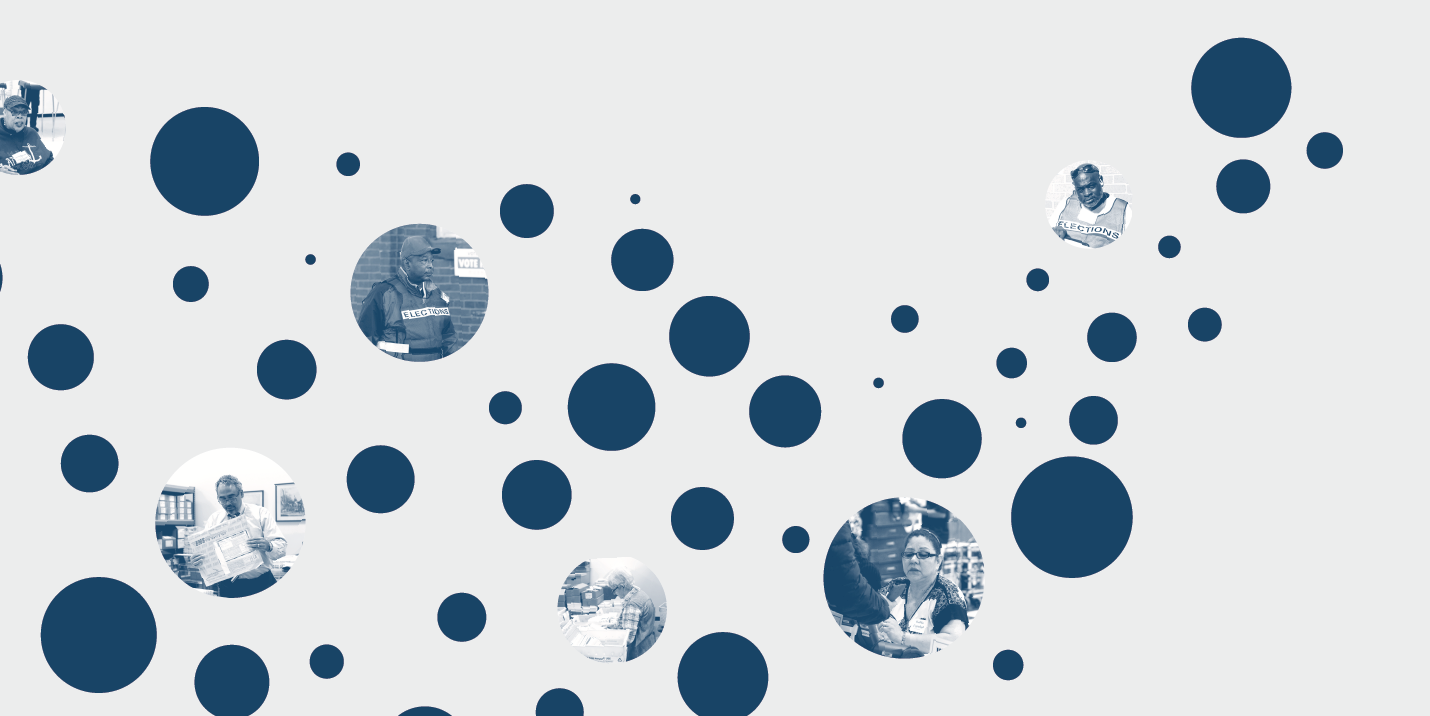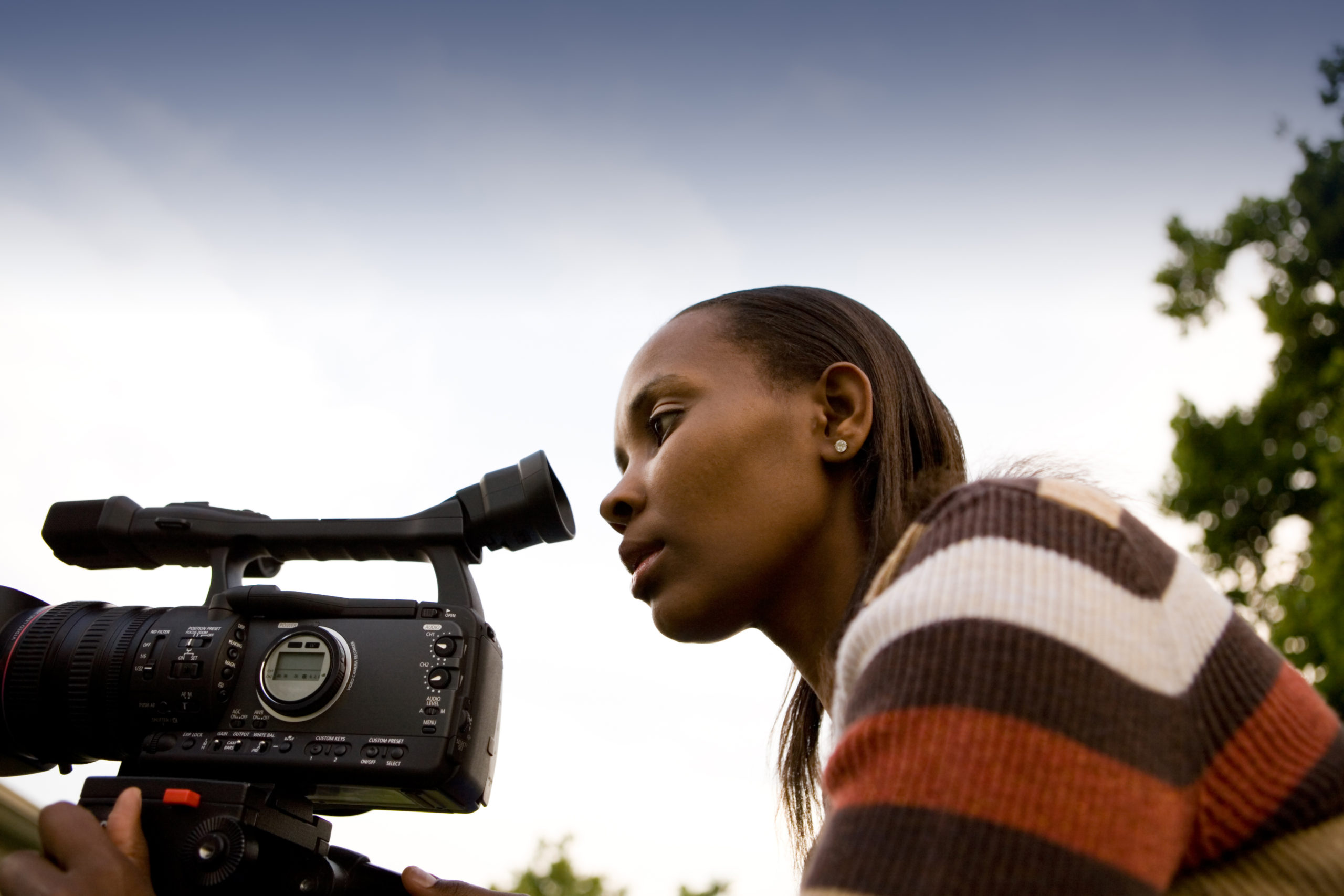When you look back at how local news fared in 2020, you might be surprised by how hopeful I am for the future.
Things have been pretty rough this year. Local newspapers, public media, digital startups, and even independent nonprofit local news outlets faced debilitating layoffs and budget shortfalls despite calls for journalism to be considered an essential service in a pandemic. Newsrooms faced a drastic plunge after a steady economic fall, but the economic reality wasn’t the only danger. Many outlets continued to hold on to outdated journalistic practices that harm communities of color and destroy trust with residents. I see that every day with Democracy Fund’s grantees — they’re stretched impossibly thin, dealing with dual pandemics of structural racism and COVID-19.
Taken as a whole, that story of local news may feel like a tragedy unfolding, but the thing is, the story of local news is so much more nuanced than that. While those grantees are stretched, at the same time, they and many other local leaders have come through with some of the most resilient, creative work this year. Across the country, we have seen many examples, like these::
These responses to challenging circumstances all centered equity and community needs, The pioneering leaders behind this work represent just a sampling of people who are ecosystem builders — who see a gap in local information where they live, and work to fill it. And the ideas they implemented in 2020 didn’t come out of nowhere. They have been writing the playbook and connecting and strengthening their ecosystems as they go, from the bottom up, for years.
Democracy Fund has dedicated millions of dollars to building healthier and more resilient local news ecosystems across the country in partnership with these ecosystem builders. This work is not possible without them, and I’ve been impossibly lucky to learn from them over my tenure as a program officer. They have been doing the hard and continuous work to develop new models, champion new ideas, build trust and community, and literally underpin our democracy, often while being unrecognized, undermined and under-funded by philanthropy.
In 2021, let’s focus on (and fund!) the solutions that have been there all along
That troubling trend of being unrecognized and unappreciated is never more clear than when I read almost any article about the future of local news. Too often, the “future of news” is defined by white men from elite parts of the industry who seize on a flashy technology or a national startup as the thing that will save us all. They ignore and demean those who are building with equity and community as their guiding star, many of whom are Black and brown women. They wail about the loss of local news, while refusing to see the solutions right in front of their faces.
In 2021, I say, no more. It’s time to put our hope, our dollars, and our support behind the people and solutions that were there all along. It’s time to listen.
Here are just a few of the Democracy Fund grantees, partners, and leaders that I am turning to for this transformative, hopeful, vision of what local news can be. All of them, and many more, are who give me hope — and I hope they give you hope, too.
- “This moment calls for radical thinking — for fundamentally reimagining the role of the journalist. By seeking a rigorous understanding of history, learning how to work collaboratively with shared trust and agency, and building collective power, journalism can rise to meet this moment in a spirit of liberation and resistance,” —Cierra Hinton, Lewis Raven Wallace, and Manolia Charlotin, leaders at PressOn, a media collective that catalyzes change and justice in the South. (Journalism Must Be an Act of Community-Building)
- “The journalists we need today are not heroic observers of crisis—they are conveners, facilitators, organizers, educators, on-demand investigators, and community builders. Most of all, they strengthen the systems that make communities resilient, ” —Darryl Holliday, co-founder of City Bureau, a civic journalism lab building community in Chicago and sharing their model with communities in Cleveland and Detroit. (What Journalism Can Learn from Mutual Aid)
- “I personally know so many colleagues who are just very passionate about journalism. They’re also passionate about New Mexico… In spite of all these pressures and all these difficulties, they believe they have a meaningful role in creating a better future for New Mexico… I think at least some folks have that mentality: that even though there are many difficulties, it is an opportunity, as well. We can choose to take the opportunity.” —Diana Alba-Soular, Southern manager for the New Mexico Local News Fund, an organization connecting journalists and communities with resources, support, and new ideas. (Why Diana Alba-Soular is working on the wellbeing of New Mexico journalism)
- “Over time, institutions and individuals in power have been allowed to ignore the concerns and struggles of the disenfranchised. But when underserved and marginalized communities come together our voices can be heard, and who better to identify the needs of the community than the people who live there? If I know anything about Newark, I know for certain that the people who make up New Jersey’s largest city are as resilient as they are resourceful and they always find a way to work it out,” —Kenneth Miles, a freelancer and consultant for the Center for Cooperative Media, a backbone organization whose mission is to grow and strengthen local journalism in New Jersey. (Solutions needed to help fill information gaps in Newark)
- “This year’s election cycle elicited record donations — now it’s time to direct that support to another feature of our democracy: a new generation of local news outlets,” —Sarabeth Berman, the Executive Director of American Journalism Project, a venture philanthropy organization which pairs capacity building with transformative investments in civic news organizations. (How the death of local news has made political divisions far worse)
- “For journalism to have a future, it must broaden its definition of audience and serve more diverse communities with a staff and models that reflect the changing reality…Well, for those publishers of color serving low-wealth news consumers, they’re already hitting that mark by attracting, serving, and building trust with those that many newsrooms have discarded. They are reimaging what a newsroom can and should be.” —Candice Fortman, Executive Director of Outlier Media, a service journalism outlet that uses SMS texting technology to provide information to Detroit and shares their methodology with other ecosystems. (Faith is not a business plan)
- “I’m realizing that so much is untapped as [NewsMatch] year over year progresses and gets to strengthen these [nonprofit news] organizations. It gives me a lot of hope for the future. Once organizations are able to learn and leverage these opportunities, it shows how a sustainable ecosystem for nonprofits news could eventually become the norm.” —Courtney Hurtt, program manager for NewsMatch, a yearly matching campaign that has helped nonprofit newsrooms raise over $100M over 5 years. (Courtney Hurtt is building a better future for nonprofit newsrooms via NewsMatch. Here’s how.)
- “By following New Jersey’s example, local and state governments can build off the decades-long tradition of public investments in media and target government funding toward news deserts and underserved communities…The future of local news is too important to be left to market forces, and the media conglomerates that got us into the local-news crisis aren’t going to get us out of it. That’s why we need more people-powered campaigns like the one behind the Civic Info Bill in New Jersey so that any decisions about local journalism respond to our needs and don’t rely on the systems that have failed us,” —Mike Rispoli, News Voices Director at Free Press and board member of the NJ Civic Info Consortium, an example of a structural change that is inspiring states across the country including in Ohio and Colorado. (Why the Civic Info Consortium Is Such a Huge Deal)
As you can probably imagine, I could share voice after voice, person after person, making change and transformation happen now. But I’ll leave you with what is probably the most important point of all:
“Alone, no one person or organization has the power, insight, creativity or path for achieving what is possible. In coalition, however, all of that is present… Together, we have everything we need.” (Media 2070: An invitation to dream up media reparations)
Together, all of these ideas, leaders, and initiatives represent the transformation that can, and will, come to local journalism in 2021. They go beyond economic bandaids and trying to recreate old systems. Instead, they look to the future and, if we support them and follow their lead, can create true structural changes so that all communities can have access to the information they need to live healthy lives. We should all thank them for giving us this hope — I certainly will.
In 2021, Democracy Fund’s Public Square Team will continue to share what we’ve learned in our first five plus years of grantmaking with you. Did something here connect with you, or did I miss something? Reach out at tgorman [@] democracyfund.org.
Learn more about Democracy Fund’s grantees and work:




